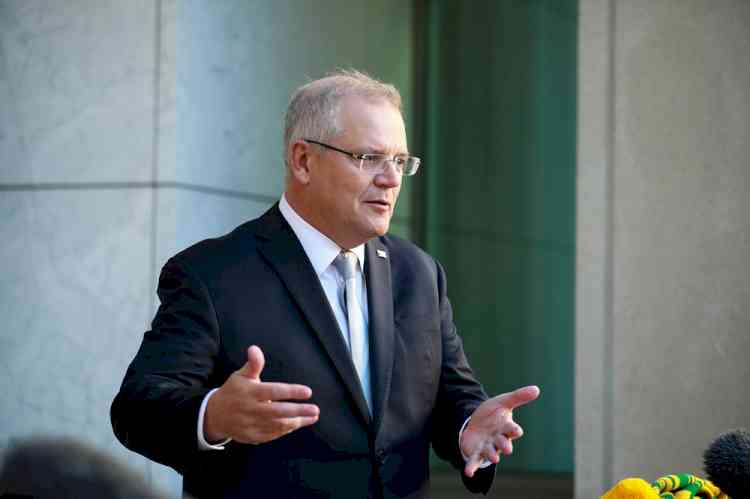Aus PM announces plan for net zero emissions by 2050

Canberra, Oct 26 (IANS) Australian Prime Minister Scott Morrison on Tuesday revealed the government's "uniquely Australian" plan to reach net zero carbon emissions by 2050.
Under the plan, which will not be legislated, about A$20 billion ($15 billion) will be invested in low-emissions technologies by 2030, reports Xinhua news agency.
It was revealed after the National Party, the junior partner in the governing Coalition with Morrison's Liberals, on Sunday confirmed "in principle" support for a net zero target in the lead-up to the UN Climate Change Conference, also known as COP26, in Glasgow.
Morrison said the "energy, trade and economic plan" would "chart a uniquely Australian way" to reducing emissions.
"Australia now has a target to achieve net zero emissions by 2050, and we have a clear plan for achieving it. The plan outlines responsible, practical action to achieve net zero that is in our national interest."
According to the Prime Minister, the plan is based on the existing policies and will be guided by five principles which are: technology not taxes; expand choices not mandates; drive down the cost of a range of new technologies; keep energy prices down with affordable and reliable power; and, be accountable for progress.
According to government projections, Australia is on track to reduce its emissions by up to 35 per cent from 2005 levels by 2030 but the current target of a 26-28 per cent reduction will remain unchanged.
Under the deal to secure support from the Nationals, the Productivity Commission will conduct reviews every five years into the economic impacts of the plan with a focus on regional communities.
The plan relies on using clean hydrogen as a lower-emissions fuel and a new priority to deliver solar power at an "ultra low cost" below A$15 per megawatt hour.
It did not include long-term modelling or cost projections, which Morrison said would be released in "due course".
However, he did say it was not a plan "at any cost", promising that it would not mark an end to Australian coal exports and would not increase energy bills.


 IANS
IANS 








